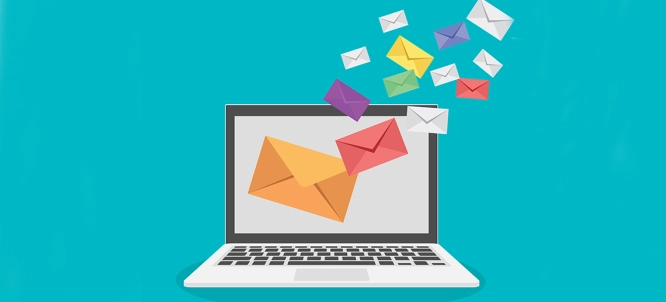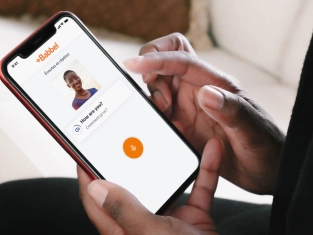by PushtoLearn
10 Synonyms to Hope You Are Well
Table of Contents
10 Alternatives to "Hope You Are Well" in Emails
TLDR
Here are 10 synonyms or alternative phrases you can use:
⭐ I hope this message finds you well.
⭐ I trust you’re doing well.
⭐ I hope you’re having a great day.
⭐ I hope all is well with you.
⭐ I trust this email finds you in good spirits.
⭐ I hope you’re doing fine.
⭐ Wishing you well.
⭐ I hope everything is going smoothly for you.
⭐ I trust you’re keeping well.
⭐ I hope you’re having a wonderful week.
10 Alternatives to "Hope You Are Well" - Exercise
This exercise focuses on 10 Alternatives to "Hope You Are Well"
1. I Hope This Message Finds You Well
This phrase is a formal and slightly old-fashioned way of checking in on someone’s well-being. It works well in professional emails, especially when you haven’t communicated with the recipient in a while.
➡️ Example: I hope this message finds you well. I’m reaching out to discuss our upcoming project deadline.
2. I Trust You’re Doing Well
This is a confident and polite way to express that you assume the person is well. It’s suitable for both professional and semi-formal contexts.
➡️ Example: I trust you’re doing well. I wanted to follow up on our last conversation about the marketing strategy.
3. I Hope You’re Having a Great Day
This phrase is a positive and friendly way to start an email, making it ideal for casual or less formal communication.
➡️ Example: I hope you’re having a great day. I’m writing to share some updates on the project.
4. I Hope All Is Well with You
This phrase is versatile and can be used in both formal and informal settings. It’s a gentle way to start an email, especially when you want to show care or concern.
➡️ Example: I hope all is well with you. I wanted to touch base regarding the upcoming meeting.
5. I Trust This Email Finds You in Good Spirits
This is a more creative and upbeat alternative. It’s well-suited for situations where you want to convey a positive tone.
➡️ Example: I trust this email finds you in good spirits. I’m excited to discuss the new opportunities we have ahead.
6. I Hope You’re Doing Fine
This phrase is straightforward and slightly less formal. It’s appropriate for both personal and professional emails, particularly when you want to keep things brief.
➡️ Example: I hope you’re doing fine. Just a quick note to remind you of our upcoming deadline.
7. Wishing You Well
This is a concise and warm phrase, perfect for brief emails or when you want to convey good wishes without being overly formal.
➡️ Example: Wishing you well. I’m following up on the proposal we submitted last week.
8. I Hope Everything Is Going Smoothly for You
This phrase is useful when you want to acknowledge that the recipient might be busy or handling multiple tasks. It’s a thoughtful way to express your hope that things are going well.
➡️ Example: I hope everything is going smoothly for you. I wanted to discuss the next steps for our project.
9. I Trust You’re Keeping Well
This is a polite and slightly formal alternative, suitable for professional correspondence where you want to convey respect and concern for the recipient’s well-being.
➡️ Example: I trust you’re keeping well. I’m reaching out to schedule our next meeting.
10. I Hope You’re Having a Wonderful Week
This phrase is cheerful and can add a positive tone to your email. It’s especially good for emails sent early in the week.
➡️ Example: I hope you’re having a wonderful week. I wanted to discuss the new client we onboarded recently.
In professional communication, the way you start your email sets the tone for the rest of the message. While "Hope you are well" is a perfectly fine greeting, varying your language can make your emails more engaging and personalized.
Business communication may depend on cultural and social factors among others. Colleagues and customers may interpret things differently. Make sure to know 10 ways to respond to "I miss you" and Thank you all to avoid misunderstanding. Also it may be useful to know how to reply properly to Nice to meet you and understand the difference between Email thread vs Email trail.

FAQ
Is it necessary to start every email with a well-wishing phrase?
Not necessarily. While it’s polite to do so, some emails—especially those in fast-paced or urgent contexts—can skip this and go straight to the point.
Can I use these alternatives in very formal emails?
Yes, some of these alternatives, like "I trust you’re doing well" and "I hope this message finds you well," are well-suited for formal communication.
Are these alternatives appropriate for emails to people I don’t know well?
Yes, many of these phrases are versatile enough to be used with both acquaintances and strangers, depending on the context and tone you wish to set.
How do I choose the right phrase for my email?
Consider the relationship you have with the recipient and the tone you want to convey. For example, use more formal phrases for professional relationships and friendly phrases for colleagues or close contacts.
Can I create my own variations of these phrases?
Absolutely! Feel free to adapt these phrases or create your own that feel natural to you and fit the context of your communication.

